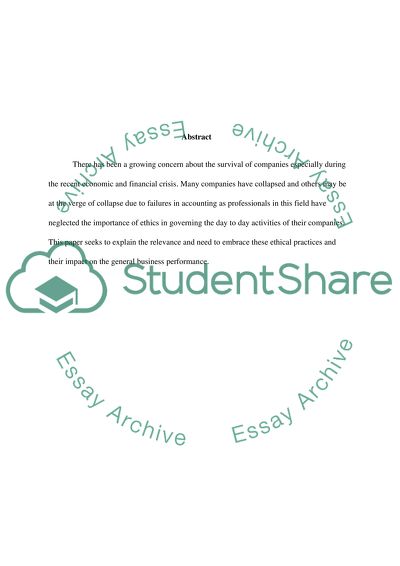Cite this document
(“Accounting Ethics and Impact on Business Performance Term Paper”, n.d.)
Retrieved from https://studentshare.org/finance-accounting/1395784-financial-accounting-ethics
Retrieved from https://studentshare.org/finance-accounting/1395784-financial-accounting-ethics
(Accounting Ethics and Impact on Business Performance Term Paper)
https://studentshare.org/finance-accounting/1395784-financial-accounting-ethics.
https://studentshare.org/finance-accounting/1395784-financial-accounting-ethics.
“Accounting Ethics and Impact on Business Performance Term Paper”, n.d. https://studentshare.org/finance-accounting/1395784-financial-accounting-ethics.


